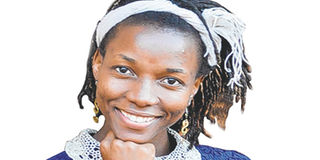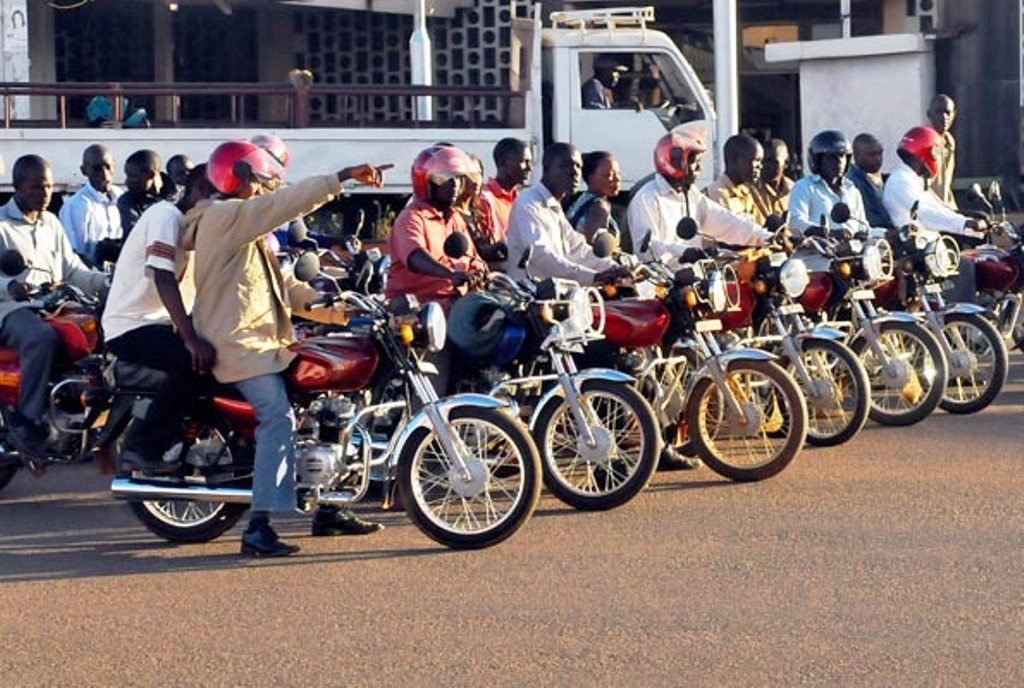Creative arts are helping girls make ends meet

Rehema. PHOTOI DAILY MONITOR
What you need to know:
First, she stayed with her uncle but his wife mistreated her, denying her a chance to read her school books at home, assigning her a lot of housework, not providing her with tea or snack, sending her late to the well in addition to verbal abuse. She could not take it for long so she chose to run away. She was in Primary Five at the time. Her uncle did not care much in helping her pursue her education. He never paid her school dues from her mother’s inheritance as agreed by the family.
At five, Rehema Nsayiwa lost her mother to the HIV/Aids scourge. She became homeless and went to the streets looking for a place to stay and family to live with. She found some family members but life was difficult there.
First, she stayed with her uncle but his wife mistreated her, denying her a chance to read her school books at home, assigning her a lot of housework, not providing her with tea or snack, sending her late to the well in addition to verbal abuse. She could not take it for long so she chose to run away. She was in Primary Five at the time. Her uncle did not care much in helping her pursue her education. He never paid her school dues from her mother’s inheritance as agreed by the family.
When she left her uncle’s home, she went to live with her aunt in Nsambya. That was where she got to interact with fellow youngsters, and got introduced to Break dance Project where young people are nurtured to become more aware of themselves, using their power to change communities they come from through breakdance.
When her aunt’s husband learned of it, he asked Nsanyiwa to stop being part of it because it involved interacting with boys. At his house, girls dressed up in long skirts not big trousers like ‘spoilt girls’ as he described them.
“And because I loved Break Dance Project Uganda, I left his house but did not know where I was going. I went down to the ghetto, to an old friend, who offered me a room for a while,” she recounts. This was in the not-so beautiful backwaters of the city in Nsambya. The room leaked heavily every time it rained. The 23-year-old remembers waking up and finding all her books soaked in water. It broke her heart but she kept focused on continuing in school.
Without a guardian but the project, she kept in school. It was difficult but she was bright and always came out on top of her class in addition to being entrusted with leadership roles such being head girl and class captain.
Dance offered a way out
Nsanyiwa dances with a friend. Dance is one of the ways through which beneficiaries of Girlbe are taught and socially linked Photos by EDGAR R. BATTE.
Prior to joining Break Dance Project Uganda, she would always be sent home for school fees, which stressed her. When she joined the project, she was supported in school. That was during her Senior Four. A supporter, Caro Bader, who was a friend of the project, offered to pay her school fees, which was about Shs180, 000 per term.
Nsanyiwa attended school at Wheeling Preparatory School in Kansanga, Tropical High School in Kabalagala, New Castle High School in Kansanga and St. Peter’s Senior Secondary School in Nsambya where she dropped out in Senior Five. When she lost hope for continuing in school after her sponsor returned to Germany, she started doing laundry for people around her neighbourhood in Kabalagala and Nsambya.
She taught Luganda to foreigners she met, and when she went home, she would meet children and help them with their homework, mentor them and for those that needed scholastic requirements, she would take some money from her meagre earnings to buy them the requirements.
She also hang out at arts’ spaces such as Art In Movement, The Hatchery and at Bayimba International Festival of the arts. That is where she met some of the foreigners she taught Luganda. As she split time between washing people’s clothes and attending workshops, all this resonated with the suffering she had undergone as a girl.
At that point, she got motivated to start a not-for-profit organisation called Girlbe, dedicated to empowering girls and women aged from seven to 25, through creative means of learning.
Reaching out to others like her
The difficulties she had experienced first-hand as she grew up struggling to access education, her exposure to HIV/Aids, alcoholism in Kansanga where she was raised. Her father was an alcoholic and homelessness all motivated her to start on a journey to give back to children and young women what she had not had.
“I envisioned a society of empowered young women, equipped with the awareness and the ability to create positive social, economic and political change to transform their lives and uplift their communities,” Nsanyiwa explains, adding that Girlbe stands for “Girl be who you dream, to be yourself”.
She composed herself to achieve this by being that girl, the dreamer, the one that deliberately questions existence or any conventional way of life to alter fundamental negatives practices and behaviour.
She operates in Kansanga’s communities of Kiyembe and Maasana zones. To deal with the youngsters, Nsanyiwa has learnt and still stays open to learn, believes in herself and sometimes lets experiences explain other experiences especially when things do not make sense.
Well, Girlbe does not have big offices like other Non-Government Organisations (NGOs). It is a big hall with a colourful banner announcing its presence. On what should have been a veranda, children play about as Nsanyiwa sweeps dirt from the hall’s interior.
At the organisation, she works with people and organisations that believe in what she does. Most of all, she promotes and inspires social cohesion and conversation about positive change in the local community of Kansanga. As she helps children with homework or plays instruments with them, community members occasionally stop by to say hello or pick on old conversations. Some of these are parents who are glad that as the sun sets, their children are utilising their time fruitfully so that they can have time to do chores or prepare a meal for family.
The environment in this part of Kansanga is of a slum, where sources of livelihood are selling charcoal on walkways, vending merchandise in small amounts and fruit and groceries stalls.
Otherwise, there are hardly homesteads but rather semi-temporary rentals, shared along a long line. Men love drinking cheap alcohol and laze around playing board games all day, and into the evening.
Nsanyiwa runs a cultural ensemble, a daily performing arts programmes which includes regular events, domestic and literacy support for the girls. She also offers specialized creative trainings and mentorship for the young women.
So far, she has imparted skills to nearly 300 girls and young women who have benefitted from the intensive workshops in self-identity, leadership, sexual reproductive health and entrepreneurship.
“We have hosted a number of community events which have engaged hundreds of local people, including an annual festival on October 11, the day of the girl child as declared by UN, to promote girls rights and address their challenges,” she adds.
Girlbe runs a weekly school support programme to ensure that girls have the means to attend school and to date have covered school fees for more than half of them. There are about 20 but the programme has benefitted some 300 girls and young women. That is in addition to a daily drop-in sessions where the girls and young women get to interact with a number of established artistes and other inspiring personalities to motivate their fresh ideas into tangible results.
Nsanyiwa poses for the camera as she plays the keyboard. Photo by Edgar R Batte.
There are themed talks, workshops about fashion, photography and music as well as self-identity, sexual reproductive health, communication, working with teams, conflict resolution, leadership, entrepreneurship and literacy.
The founder of the NGO does not have funders or sponsors but runs all this through contributions from friends and her personal finances from residencies she has run from places like 32º East, Ugandan Arts Trust.
“We offer conferences or offer workshops in communities that have the capacity to pay. We also occasionally host fundraiser events, online and physical,” Nsanyiwa discloses.
She will have to professionalise her work which she says is hard because it is sentimental. She explains, “Well, it is difficult to establish structures - systems and processes. These are things I learned of when I had already got involved in the project. I didn’t even know I had to register the organisation. When I started the project, I could hardly articulate what the organisation did or what my role was.”
All concepts have been based on personal experience and how she sees society position of girls and women. So, Girlbe has remained a sentimental attachment or value for everything she does. It is very personal and she finds it difficult to professionalise a personal passion.
Her short term wish is to continue building the organisation’s programmes, her team and community. Long term, she plans to run a diverse vibrant cultural space in the heart of Kansanga.
What beneficiaries say…
Ever since I came to Girlbe last year, I have been able to learn how to dance and sing. I was brought here by my mother because she thought I could acquire more skills. I would like to become a fashion designer because I love colours and designing clothes.
Daphine Nakimuli,9, Kansanga Primary School
I have always been passionate about music and dance and I have learnt these and have also been able to acquire skills in tailoring and photograph thanks to our mentor Rehema. At school, I am good at mathematics and commerce, and I look forward to becoming a bank manager when I am older.
Jamirah Nabuuma, 13, Kansanga Seed Secondary School




